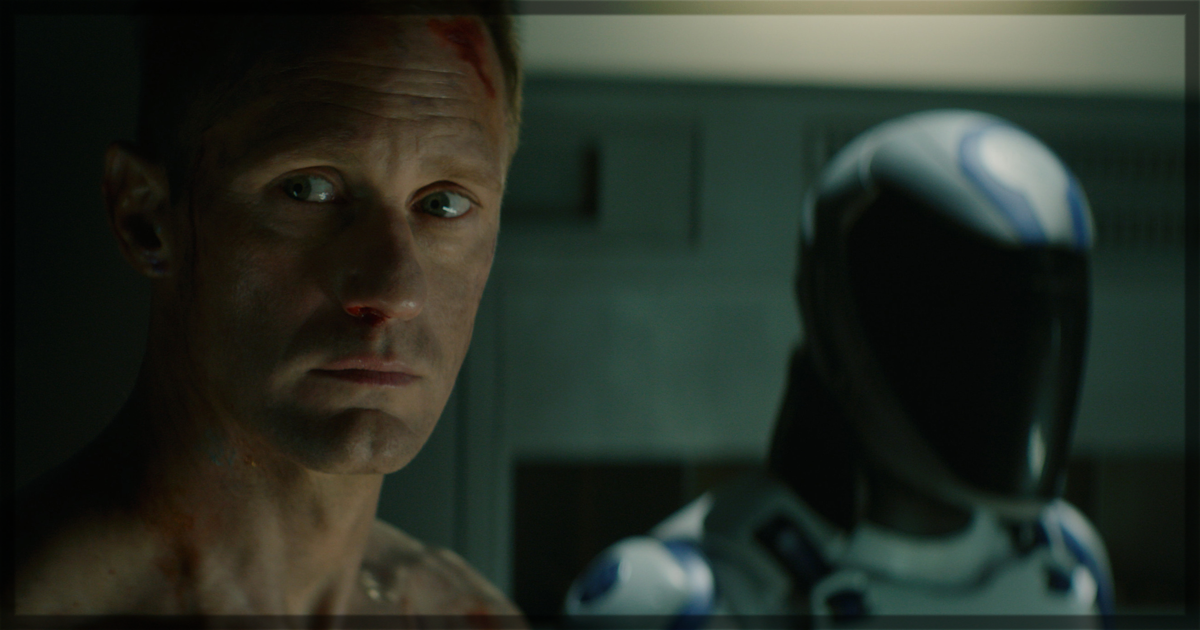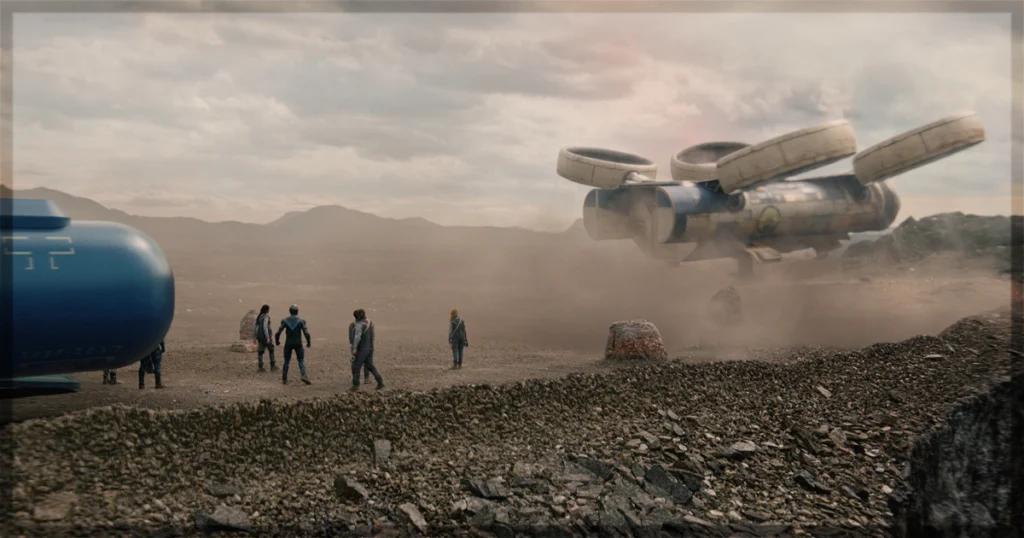Upon the news that Murderbot has been renewed for a second series, we can all breathe more easily. This first series is the demonstration of how the Pinocchio became a real boy, or in this case, a genderless sentient construct that, without its armor, looks like an augmented human. But what will such a being, that was never meant to have free will in the first place, do now that it has it?
Well. Murderbot (Alexander Skarsgård) has been returned to the corporation after having its memory banks erased, and by some very nasty employees, one might add. And yet it remains itself, unwilling to attack a group of workers protesting that they are being denied food for refusing to work for subpar wages. It pays a high price indeed for such gallantry, but fortunately the hippie scientists are united in trying to restore Murderbot to itself. Pin-Lee (Sabrina Wu) finally gets a moment to shine as a lawyer, Ratthi (Akshay Khanna) is allowed nowhere near the negotiations, and of all people it’s Gurathin (David Dastmalchian, truly the series MVP) who saves the day. The courage and kindness Gurathin displays here towards Murderbot is unexpected, since their mutual animosity has been pretty much the main guarantee. But Murderbot did something extraordinary for Mensah (Noma Dumezweni) although frankly, even if it hadn’t, it still deserves to be treated as more than a piece of property. And the way in which Gurathin is able to pull off this impossible trick is as funny as it is moving.
The press conference Mensah and Bharadwaj hold, at which they are filmed by little drone cameras flying behind the heads of the heavily-made-up journalists, also makes it clear the anger they have about how they have been treated. This is anger no one within the corporation system allows themselves to express openly, though the constant sarcastic remarks from all sides never cease. (This is an extremely American coping mechanism, by the way, and the fact the cast is largely not American adds an extra edge to this.) The brutalist architecture of the living area where Gurathin goes on an unpleasant errand is very heavy and alienating, although the casual revelation that Gurathin’s unpleasant contact is homosexual is not. The forward-looking attitude of the personal lives and relationships on this show – Pin-Lee uses they/them pronouns, at which no one bats an eye – combines with the pervasive surveillance and the overwhelming corporate control to feel a lot like the current moment, only augmented. Workers sleeping on the subway platform floor, as is done at the very end of the show, is happening in cities everywhere right now.
And yet it’s very clear no one else in the galaxy would have helped Murderbot out the way these hippie scientists have, nor would anyone else be as accepting as the final choice Murderbot ends up making. And the value of kindness, especially when that kindness is shown to someone who might not be deserving of it, is the whole point of the show. The choice to operate in good faith, as demonstrated by Ratthi’s open-hearted willingness to fling himself into any situation, is highly unusual in this unpleasant, controlling world. Gosh, if there are any metaphors for the zeitgeist here, it sure is hard to see them. Kindness should not be as rare as it is, and nor should a show this quietly and surprisingly excellent be equally rare. Congratulations to all involved, and let’s hope that radical attitude towards kindness continues in Murderbot’s second series.
Murderbot is now streaming on Apple TV+.
Learn more about the show, including how to watch, at the Apple TV+ site for the title.


